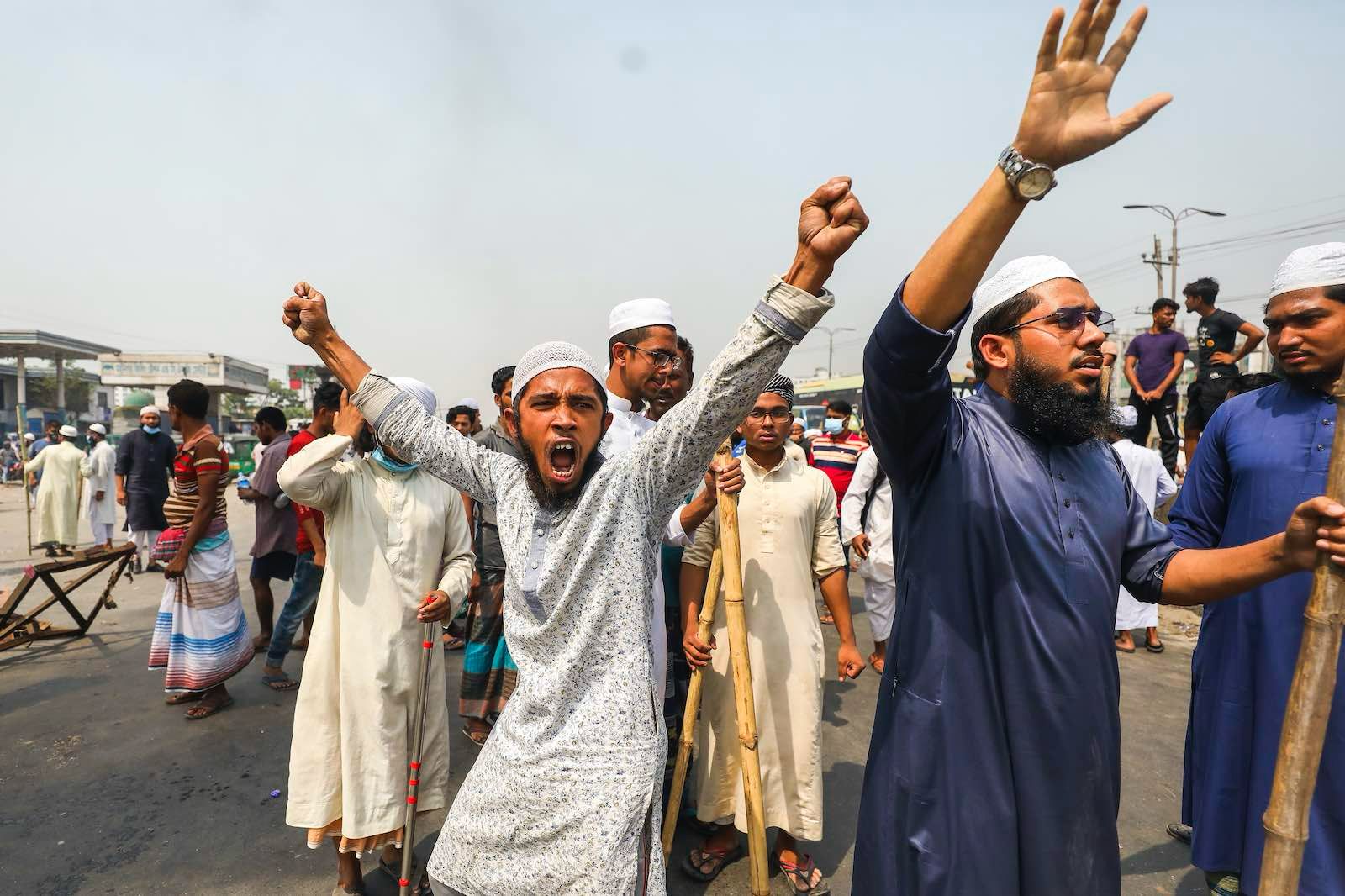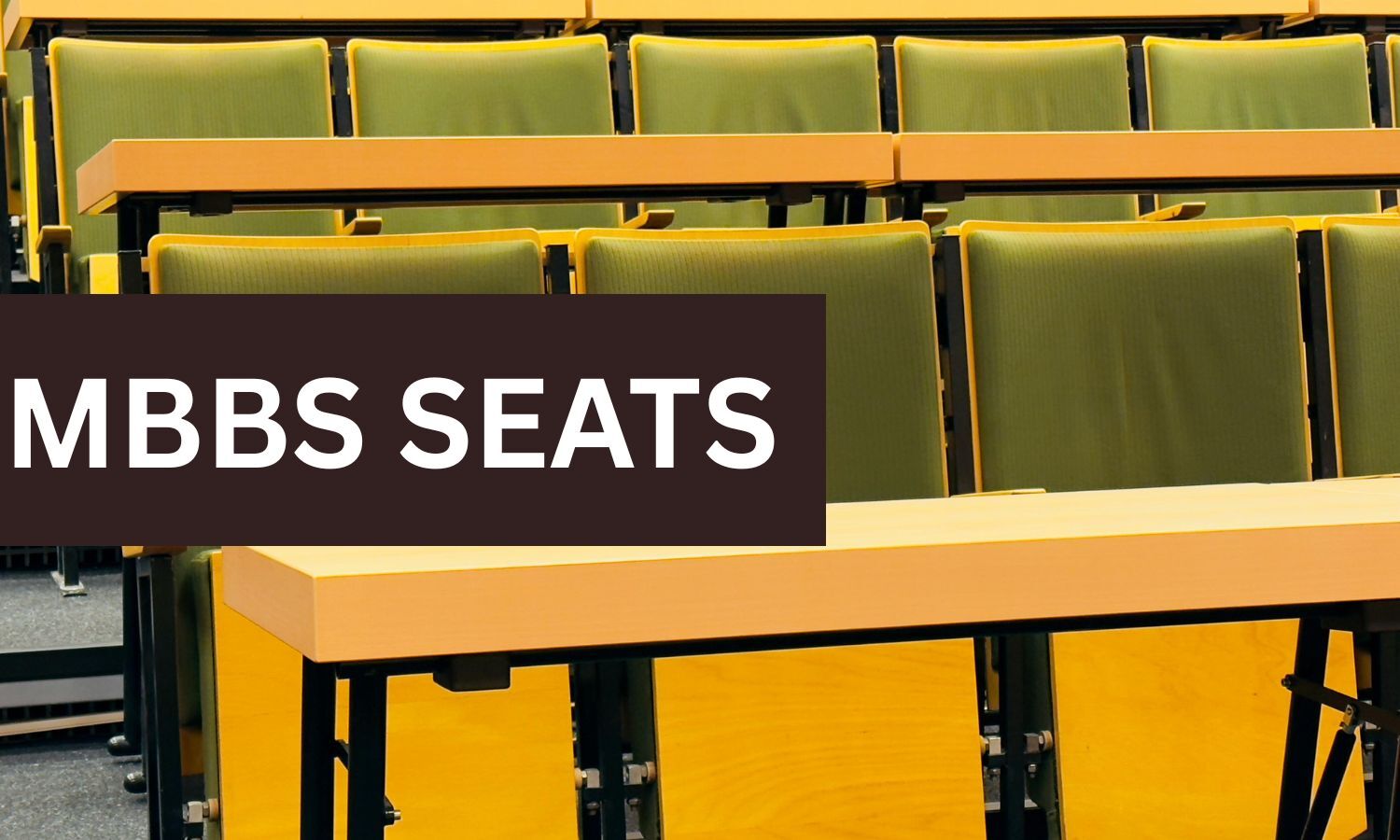Rising tide across the border: Why India must watch Bangladesh’s Islamist surge closely
The Jamaat-e-Islami’s stunning campus victory signals a deeper political shift that could reshape India’s eastern frontier. The news from our eastern neighbor, Bangladesh, barely registered as a blip in India’s busy news cycle. After all, it was “just” a student election. But beneath this seemingly minor event lies a profound geopolitical tremor. The student wing of the Jamaat-e-Islami (JeI), the Islami Chhatra Shibir, swept the Dhaka University Central Students’ Union (DUCSU) elections a feat that marks the first time since Bangladesh’s birth in 1971 that an Islamist group has captured this prestigious and politically symbolic institution. For many, this development may appear irrelevant a student body in a foreign country choosing its representatives. But for New Delhi, this is no ordinary development. It signals a dramatic shift in Bangladesh’s political mood, one that could have serious consequences for India’s national security, border stability, and regional diplomacy. In the past, Dhaka University elections have often served as a political barometer for the nation, foreshadowing major electoral trends. To understand the magnitude of this victory, one must look at the broader context. Bangladesh has been politically unstable since the dramatic fall of Sheikh Hasina’s Awami League government earlier this year. Mass student-led protests toppled the regime, forcing Hasina into exile and leading to the formation of an interim administration under Nobel laureate Muhammad Yunus. The Awami League, which had ruled for over 15 years, has now been officially banned from participating in the general elections scheduled for February 2026. The other traditional powerhouse, the Bangladesh Nationalist Party (BNP), is no better positioned. Its matriarch, Begum Khaleda Zia, is ailing and largely inactive. Much of its leadership has been based in London for years, creating a perception of detachment from grassroots realities. While the BNP retains some loyal voters, it is struggling to mobilize mass support in the current climate of upheaval. With both the Awami League and BNP weakened or sidelined, a massive political vacuum has emerged. Into this void steps the Jamaat-e-Islami, a party with deep organizational roots, a robust welfare network, and a cadre-based system that has been quietly building strength during years of suppression under Awami League rule. Its student wing’s triumph at Dhaka University is not merely symbolic it represents the first tangible evidence of the Jamaat’s resurgence. It is tempting to interpret this victory as a sudden surge of Islamist fervor among Bangladesh’s youth, but that would be an oversimplification. In reality, the electorate’s support for the Jamaat appears to be less about ideological alignment and more about frustration. After decades of governance marked by corruption, nepotism, and political violence, many young voters see the Jamaat as untainted by the rot of the traditional parties. This is not unlike what we have witnessed in other parts of the world, where voters, disillusioned with mainstream politics, turn to groups that present themselves as “clean” outsiders, even if their ideology is extreme or exclusionary. For a generation born long after the 1971 Liberation War, the Jamaat’s collaborationist role during that conflict carries far less emotional weight than it does for their parents or grandparents. Instead, these voters are focused on the here and now jobs, governance, and accountability. For India, this development could mark the beginning of a deeply challenging phase. The Awami League, under Sheikh Hasina, was New Delhi’s most dependable partner in the region. Hasina’s government worked closely with India on counter-terrorism, cross-border infrastructure, and connectivity initiatives. Under her leadership, India’s northeastern states experienced relative stability, as Dhaka cracked down on anti-India insurgent groups operating from Bangladeshi territory. That era may be ending. With the Awami League out of the picture and the BNP weakened, the Jamaat now has a realistic shot at securing a powerful role in the next government possibly even leading a coalition. A Jamaat-led or Jamaat-influenced regime would fundamentally alter the dynamics of India-Bangladesh relations. There are three primary concerns for New Delhi. First, border security could deteriorate. A Jamaat ascendance could embolden anti-India elements along the border. Historically, Islamist groups in Bangladesh have maintained close ties with the Pakistani ISI and have offered shelter to insurgent outfits operating in Assam, Tripura, and Meghalaya. A sympathetic government in Dhaka could undo years of counter-terrorism cooperation. Second, there is the risk of rising religious persecution. Bangladesh’s Hindu minority has always been vulnerable during periods of political turmoil. Under regimes sympathetic to hardline Islamists, attacks on Hindu temples, businesses,



The Jamaat-e-Islami’s stunning campus victory signals a deeper political shift that could reshape India’s eastern frontier. The news from our eastern neighbor, Bangladesh, barely registered as a blip in India’s busy news cycle. After all, it was “just” a student election.
But beneath this seemingly minor event lies a profound geopolitical tremor. The student wing of the Jamaat-e-Islami (JeI), the Islami Chhatra Shibir, swept the Dhaka University Central Students’ Union (DUCSU) elections a feat that marks the first time since Bangladesh’s birth in 1971 that an Islamist group has captured this prestigious and politically symbolic institution.
For many, this development may appear irrelevant a student body in a foreign country choosing its representatives. But for New Delhi, this is no ordinary development. It signals a dramatic shift in Bangladesh’s political mood, one that could have serious consequences for India’s national security, border stability, and regional diplomacy. In the past, Dhaka University elections have often served as a political barometer for the nation, foreshadowing major electoral trends.
To understand the magnitude of this victory, one must look at the broader context. Bangladesh has been politically unstable since the dramatic fall of Sheikh Hasina’s Awami League government earlier this year. Mass student-led protests toppled the regime, forcing Hasina into exile and leading to the formation of an interim administration under Nobel laureate Muhammad Yunus. The Awami League, which had ruled for over 15 years, has now been officially banned from participating in the general elections scheduled for February 2026.
The other traditional powerhouse, the Bangladesh Nationalist Party (BNP), is no better positioned. Its matriarch, Begum Khaleda Zia, is ailing and largely inactive. Much of its leadership has been based in London for years, creating a perception of detachment from grassroots realities. While the BNP retains some loyal voters, it is struggling to mobilize mass support in the current climate of upheaval.
With both the Awami League and BNP weakened or sidelined, a massive political vacuum has emerged. Into this void steps the Jamaat-e-Islami, a party with deep organizational roots, a robust welfare network, and a cadre-based system that has been quietly building strength during years of suppression under Awami League rule. Its student wing’s triumph at Dhaka University is not merely symbolic it represents the first tangible evidence of the Jamaat’s resurgence.
It is tempting to interpret this victory as a sudden surge of Islamist fervor among Bangladesh’s youth, but that would be an oversimplification. In reality, the electorate’s support for the Jamaat appears to be less about ideological alignment and more about frustration. After decades of governance marked by corruption, nepotism, and political violence, many young voters see the Jamaat as untainted by the rot of the traditional parties.
This is not unlike what we have witnessed in other parts of the world, where voters, disillusioned with mainstream politics, turn to groups that present themselves as “clean” outsiders, even if their ideology is extreme or exclusionary. For a generation born long after the 1971 Liberation War, the Jamaat’s collaborationist role during that conflict carries far less emotional weight than it does for their parents or grandparents. Instead, these voters are focused on the here and now jobs, governance, and accountability.
For India, this development could mark the beginning of a deeply challenging phase. The Awami League, under Sheikh Hasina, was New Delhi’s most dependable partner in the region. Hasina’s government worked closely with India on counter-terrorism, cross-border infrastructure, and connectivity initiatives. Under her leadership, India’s northeastern states experienced relative stability, as Dhaka cracked down on anti-India insurgent groups operating from Bangladeshi territory.
That era may be ending. With the Awami League out of the picture and the BNP weakened, the Jamaat now has a realistic shot at securing a powerful role in the next government possibly even leading a coalition. A Jamaat-led or Jamaat-influenced regime would fundamentally alter the dynamics of India-Bangladesh relations.
There are three primary concerns for New Delhi. First, border security could deteriorate. A Jamaat ascendance could embolden anti-India elements along the border. Historically, Islamist groups in Bangladesh have maintained close ties with the Pakistani ISI and have offered shelter to insurgent outfits operating in Assam, Tripura, and Meghalaya. A sympathetic government in Dhaka could undo years of counter-terrorism cooperation.
Second, there is the risk of rising religious persecution. Bangladesh’s Hindu minority has always been vulnerable during periods of political turmoil. Under regimes sympathetic to hardline Islamists, attacks on Hindu temples, businesses, and communities have historically spiked. India could face a humanitarian crisis along its borders if communal violence intensifies.
Third, there is the danger of strategic realignment. A Jamaat-led government may tilt Bangladesh away from India and towards China or even Turkey, both of which have cultivated ties with Islamist and conservative political movements across the Muslim world. This would threaten India’s strategic interests in the Bay of Bengal and undermine initiatives like BIMSTEC and the Act East policy.
The DUCSU election result is, therefore, not an isolated event but a warning sign. Bangladesh’s political tectonic plates are shifting. For too long, India has viewed Bangladeshi politics through the prism of the Awami League vs. BNP rivalry. That framework is now obsolete.
New Delhi must recalibrate quickly. This means intensifying diplomatic engagement not only with the interim government but also with emerging political forces, including moderate factions within the Jamaat. It must strengthen border management to preempt a surge in infiltration, arms smuggling, and cross-border militancy. Contingency plans must be built for a possible refugee influx in case of communal violence or political breakdown. India must also leverage regional partnerships, especially with Bhutan and Nepal, to present a united front on counter-terrorism and migration issues.
India’s traditional stance of “non-interference” may sound noble, but in practice, events in Dhaka directly affect security and stability in the Northeast. Ignoring them would be dangerously naïve. The DUCSU election was more than a campus poll; it was a political earthquake. The tremors may have started in Dhaka, but their aftershocks could soon be felt from Kolkata to Guwahati.
For India, the message is clear: a new chapter in Bangladesh’s history is unfolding, and we must be prepared to deal with its challenges head-on.
















































































































